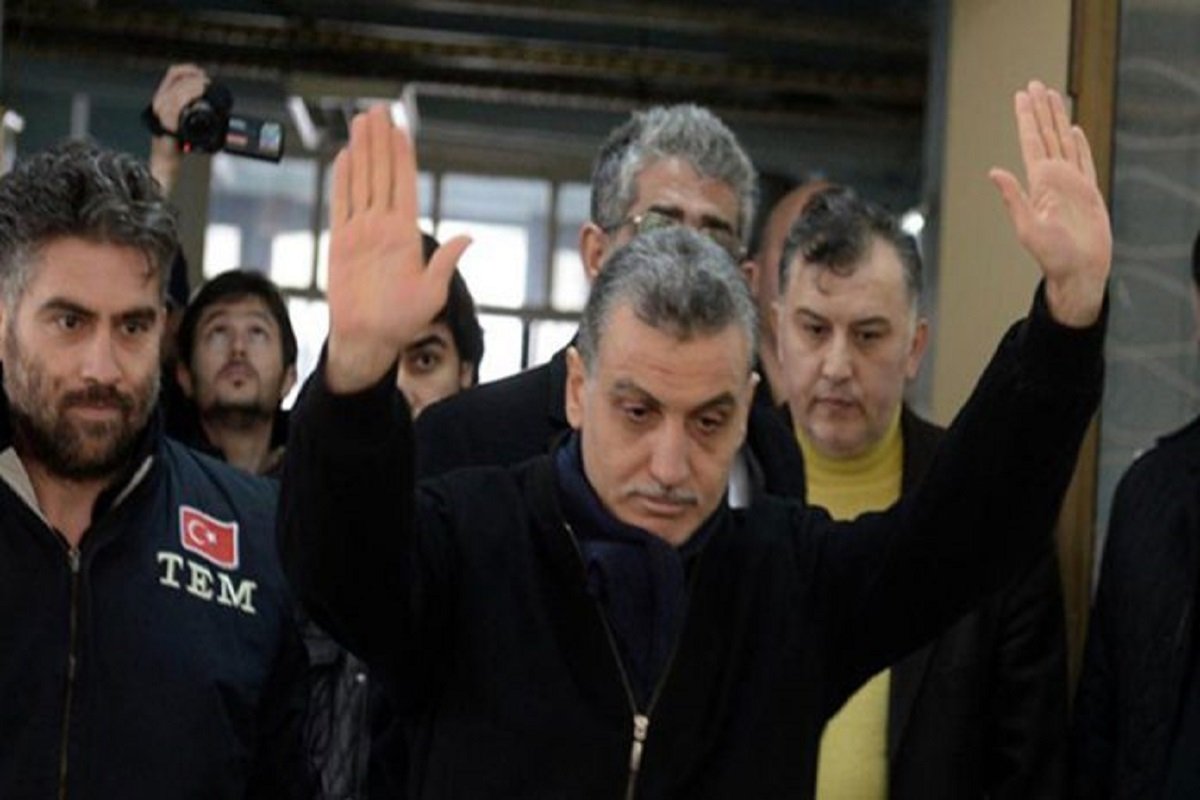An Ankara prosecutor on Wednesday sought life sentences for 7 people, including jailed journalist Hidayet Karaca, the former chairman of now-closed Samanyolu Broadcasting Group and İlhan İşbilen, the former deputy of ruling Justice and Development Party (AKP) on Wednesday over their alleged links to the Gülen movement. Karaca and İşbilen have been jailed pending trial.
Adnan Gümüş, the chief prosecutor at Ankara’s 4th High Criminal Court, where the case is being heard, requested aggravated life sentences for the 7 people in one of the major cases targeting alleged members of the Gülen movement and involving 75 defendants.
The defendants are mainly accused of “attempting to overthrow the government,” “setting up an armed terror group” and “violating the constitution” as well as “forging official documents,” “political and military spying” and a”busing religious sentiments.”
Prosecutor Gümüş has also demanded the continuation of detention of the defendants in question.
Karaca has been held in notorious Silivri Prison in İstanbul more than three years and sentenced by an İstanbul court to 31 years and 6 months imprisonment over a scenario of soap opera which was broadcasted by Samanyolu TV. Karaca was sentenced on charges of membership in a “terrorist organisation” and for allegedly slandering the al-Qaeda-affiliated radical Islamist group Tahşiyeciler.
In an operation on Dec. 14, 2014, former Zaman Editor-in-Chief Ekrem Dumanlı, Karaca and a number of soap opera scriptwriters and some police officers were detained on charges of terrorism and membership in an organization that allegedly conspired against Tahşiyeciler based on a speech by Turkish Islamic scholar Fethullah Gülen in 2009 in which the scholar warned against a group that “might” be called Tahşiyeciler and whose leader, Mehmet Doğan, had publicly praised Osama bin Laden.
The prosecutors who ordered the Dec. 14 detentions claim that following Gülen’s speech, Dumanlı ordered two columnists to write about Tahşiyeciler and that he published a news report on the speech. The allegations also claim that Samanyolu TV made implications about the group in an episode of a soap opera it broadcast. It was further claimed that the police then “unfairly” raided the group.
Previous reports by police intelligence, military intelligence and the National Intelligence Organization (MİT) had described Tahşiyeciler as a terrorist group linked to al-Qaeda. In a 2009 live broadcast on CNN Türk TV, the leader of the Tahşiyeciler group stated that he liked former al-Qaeda head Osama bin Laden. On May 23, 2016 Mustafa Kaplan, a complainant in the case, admitted having written a book that praises suicide bombers.
The lawyers for the defendants asked Kaplan if a book titled “Reddül Evham” was written by him and he agreed that the book was his. Then the lawyers asked if he supported suicide bombers as the book does, and Kaplan answered, “I support whatever the book says.” The lawyers reminded the court that the book says it is permissible for a suicide bomber to blow himself up even if there is a Muslim child in the area where he detonates himself.
In June 2016, Robert Mariani, United States judge for the Middle District of Pennsylvania, dropped a case against Gülen, stating that there were no grounds for the claims brought to the court by Turkey’s ruling Justice and Development Party (AKP).
The AKP had hired Amsterdam & Partners to have Gülen prosecuted in the US, claiming that members of a group called Tahşiyeciler in Turkey were unlawfully arrested in the past due to Gülen’s influence within the Turkish police force. Judge Mariani found the Turkish government’s allegations “coincidental and baseless.”
Turkey is the biggest jailer of journalists in the world. The most recent figures documented by the SCF has showed that 245 journalists and media workers are in jails as of January 24, 2018, most in pre-trial detention languishing in notorious Turkish prisons without even a conviction. Of those in Turkish prisons, 218 are arrested pending trial, only 27 journalists remain convicted and serving time in Turkish prisons. An outstanding detention warrants remain for 140 journalists who live in exile or remain at large in Turkey.
Detaining tens of thousands of people over alleged links to the Gülen movement, the government also closed down more than 180 media outlets after the controversial coup attempt.
Turkey survived a controversial military coup attempt on July 15, 2016 that killed 249 people. Immediately after the putsch, the Justice and Development Party (AKP) government along with Turkish autocratic President Recep Tayyip Erdoğan pinned the blame on the Gülen movement.
Gülen, who inspired the movement, strongly denied having any role in the failed coup and called for an international investigation into it, but President Erdoğan — calling the coup attempt “a gift from God” — and the government initiated a widespread purge aimed at cleansing sympathizers of the movement from within state institutions, dehumanizing its popular figures and putting them in custody.
Turkey has suspended or dismissed more than 150,000 judges, teachers, police and civil servants since July 15. Turkey’s Interior Minister announced on December 12, 2017 that 55,665 people have been arrested. Previously, on December 13, 2017, The Justice Ministry announced that 169,013 people have been the subject of legal proceedings on coup charges since the failed coup.
A total of 48,305 people were arrested by courts across Turkey in 2017 over their alleged links to the Gülen movement, said Turkish Interior Minister Süleyman Soylu on Dec. 2, 2017. “The number of detentions is nearly three times higher,” Soylu told a security meeting in İstanbul and claimed that “Even these figures are not enough to reveal the severity of the issue.”















